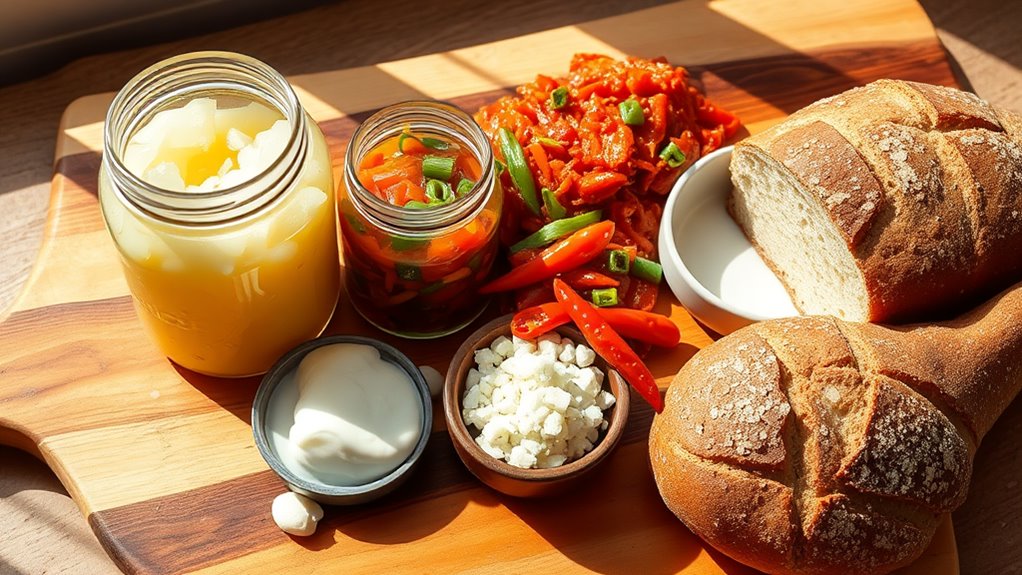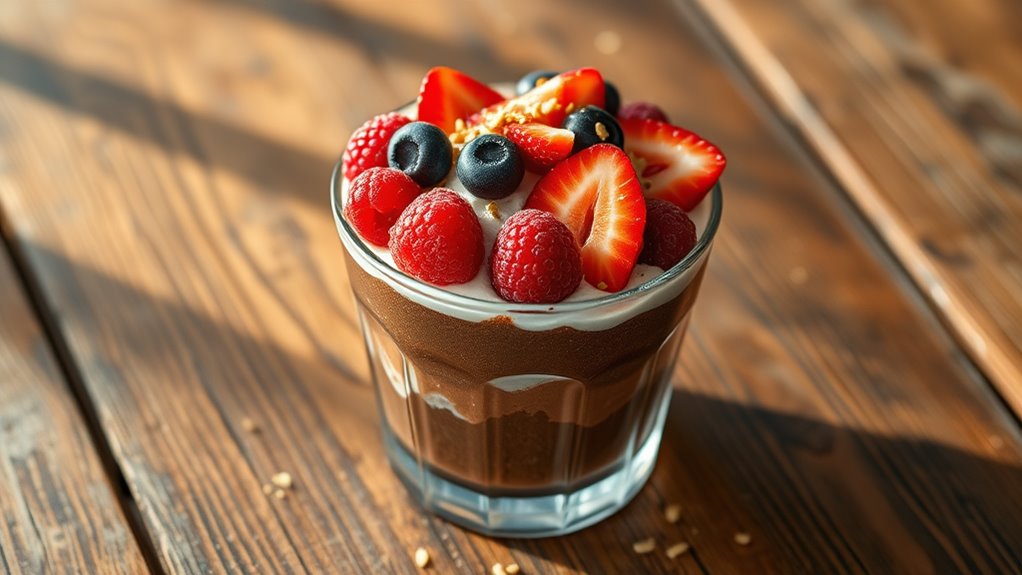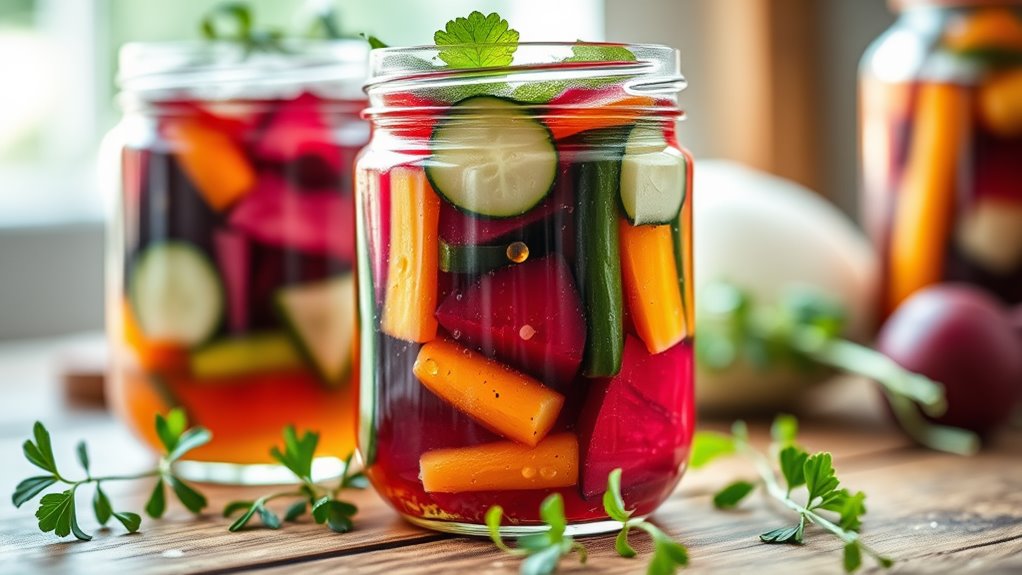Fermented Foods I Eat Weekly for Better Digestion
Fermented foods can work wonders for your digestion—almost like magic! Incorporating foods like sauerkraut, kefir, and kimchi into your weekly meals can significantly enhance gut health. These options aren’t just tasty; they’re packed with probiotics that support your digestive system. Curious about how these foods can fit into your diet and what benefits they bring? Let’s explore some practical additions you can make for a healthier gut.
Sauerkraut
Sauerkraut, a tangy fermented cabbage, is more than just a tasty topping for your favorite dishes; it’s a powerful ally for gut health.
Packed with probiotics, it enhances digestion and balances your gut microbiome. Regularly consuming sauerkraut allows you to reap fermented food benefits, like improved nutrient absorption and immune support. Additionally, sauerkraut is a great source of fermented drinks that can further boost your overall well-being.
Incorporate this food into meals for a flavorful health boost!
Kefir
Moving from the tangy crunch of sauerkraut, kefir offers another delicious way to support your digestive health.
Packed with probiotics, this fermented milk drink can enhance your gut flora, improving digestion and nutrient absorption. You can easily add kefir to smoothies, salads, or enjoy it plain. Incorporating it weekly can help maintain a balanced gut and bolster your overall wellness. Additionally, research shows that herbal extracts can complement probiotics like those found in kefir, further enhancing digestive health.
Kimchi
Kimchi, the vibrant and spicy staple of Korean cuisine, not only tantalizes your taste buds but also supports your digestive health. Packed with probiotics, it helps balance gut flora, aiding in digestion and improving overall gut health. Here’s a quick look at its benefits:
| Benefit | Description | Sources |
|---|---|---|
| Probiotics | Enhances gut bacteria | Fermented cabbage |
| Vitamins | Rich in vitamins A, B, C | Fresh vegetables |
| Antioxidants | Protects cells from damage | Spices and garlic |
| Low Calorie | Supports weight management | Healthy ingredients |
| Anti-Inflammatory | May reduce gut inflammation | Garlic and ginger |
Additionally, including kimchi in your diet can complement your intake of other herbal teas for digestion, which can further enhance gut health.
Yogurt
When you incorporate yogurt into your diet, you’re not just enjoying a tasty treat; you’re also promoting a healthier digestive system.
Packed with probiotics, yogurt aids in balancing gut bacteria, which is crucial for digestion. Additionally, its creamy texture makes it versatile—add fruits or nuts for a nutritious snack. Aim for varieties with live cultures for maximum digestive benefits. Furthermore, yogurt can be a source of healthy homemade options that provide both flavor and nutritional advantages.
Miso
Miso, a traditional Japanese fermented soybean paste, is a powerhouse for your digestive health. Packed with probiotics, it helps balance gut flora and enhances nutrient absorption. Incorporating delightful DIY fermented foods into your meals can make the process even more enjoyable.
Incorporate it into soups, dressings, or marinades to enjoy its rich umami flavor and health benefits. Just remember, moderation is key; its high sodium content may not be ideal for everyone. Make it a staple in your diet!
Tempeh
Tempeh, a dense and nutty soy product, is another excellent option for improving your digestive health. Packed with probiotics, it’s fermented, which enhances nutrient absorption and gut flora. You can add tempeh to salads, stir-fries, or sandwiches for a nutritious boost.
| Nutrient | Benefits |
|---|---|
| Protein | Supports muscle growth |
| Fiber | Aids digestion |
| Probiotics | Promotes gut health |
| Iron | Boosts energy levels |
| Magnesium | Regulates muscle function |





